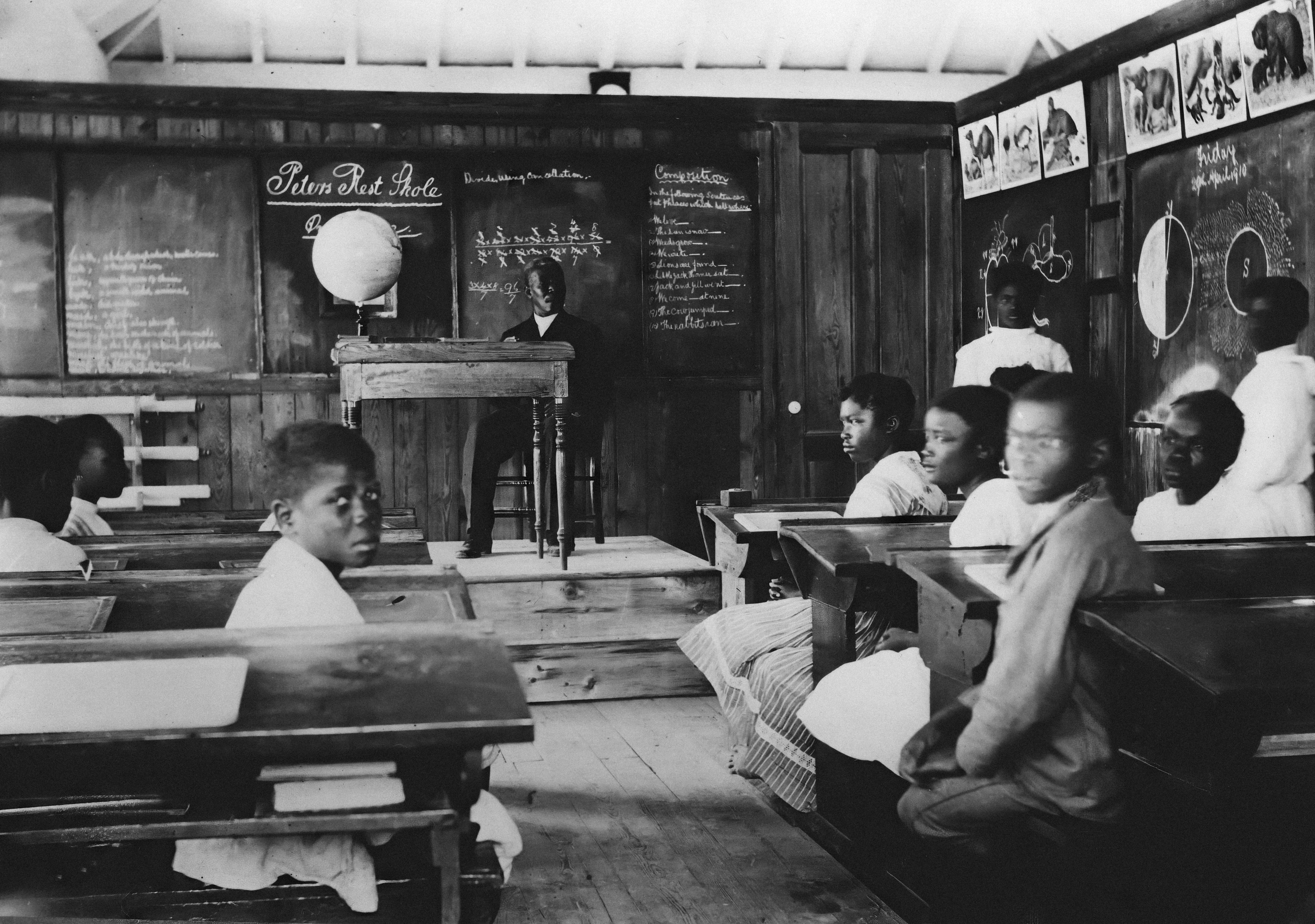Home economics is an interdisciplinary field that combines aspects of science, art, and economics to prepare individuals for the practicalities of daily life. Historically, this field emerged in the late 19th century, primarily focusing on the efficient management of household resources. Since its inception, home economics has evolved significantly, adapting to societal changes and reflecting the increased complexity of modern life.
One of the primary areas covered by home economics is nutrition. In this context, students learn the principles of healthy eating, the importance of balanced diets, and ways to make nutritious choices based on dietary needs. This knowledge is vital as it promotes wellness and helps combat issues like obesity and malnutrition, thereby fostering a healthier society.
Family management is another critical component of home economics. It encompasses the strategies and skills necessary for effective household management, including time management, organization, and communication skills. By learning about family dynamics and problem-solving approaches, students are better equipped to navigate interpersonal relationships and foster harmonious living environments.
Financial literacy forms a cornerstone of home economics as it empowers students with the tools to manage their finances effectively. This includes budgeting, saving, and understanding credit. With the complexities of today’s financial world, these skills are indispensable for fostering responsible citizens who can make informed financial decisions.
Lastly, consumer education plays a crucial role in home economics. It equips students with the knowledge to make informed choices regarding purchases, understand market dynamics, and become aware of consumer rights and responsibilities. In an age where consumerism is prevalent, understanding these concepts is essential for navigating the marketplace responsibly.
In summary, home economics remains highly relevant today as it encompasses crucial life skills ranging from nutrition to financial management, preparing secondary school students to lead successful and fulfilling lives. The evolution of home economics reflects the changing needs of society, making it an integral part of education today.
Skills Development Through Home Economics
Home economics education plays a pivotal role in the development of practical skills essential for secondary school students. This discipline encompasses a wide range of areas, with fundamental focus on cooking, sewing, budgeting, and effective household management. Through engaging in these activities, students acquire competencies that are not only integral for personal life but also contribute significantly to building self-confidence and independence.
Cooking is often one of the most emphasized areas in home economics. Students learn essential culinary techniques, meal planning, and nutritional understanding. By preparing nutritious meals, they gain hands-on experience that fosters healthy eating habits and a sense of accomplishment. This skill aids them in making informed dietary choices, which can have long-term health benefits.
Sewing is another vital skill integrated into home economics education. As students learn to create and mend clothing, they not only engage in creative self-expression but also develop problem-solving skills. Mastering sewing techniques instills a sense of pride, as students see their projects come to life. Furthermore, these abilities can lead to financial savings and a greater sense of autonomy when managing personal wardrobes.
Budgeting is a critical life skill that students explore within home economics. Learning how to effectively manage finances equips them with the knowledge to track expenses, save for future goals, and make informed purchasing decisions. In doing so, students prepare themselves to navigate the complexities of adult life with greater ease and confidence.
Finally, effective household management encompasses organization and time management skills, enabling students to balance responsibilities and prioritize tasks efficiently. This holistic approach to learning instills a sense of readiness and independence that is invaluable for success beyond the classroom. Overall, home economics provides students with essential skills for personal development and life management.
Enhancing Financial Literacy
Financial literacy is a vital skill set that enables individuals to make informed and effective decisions regarding their financial resources. In today’s increasingly complex financial landscape, equipping secondary school students with a foundational understanding of financial concepts is essential. Home economics serves as a crucial tool in introducing students to the principles of financial management, emphasizing the importance of budgeting, saving, and investing.
Budgeting is one of the fundamental skills taught in home economics. It involves understanding income versus expenses, allowing students to create realistic budgets that reflect their financial goals. By learning to allocate their funds effectively, students are prepared to manage their personal finances when they transition into adulthood. This practical skill not only fosters responsible financial habits but also reduces the likelihood of falling into debt.
Saving is another significant aspect of financial literacy addressed in home economics. Students learn the importance of setting aside funds for future needs and emergencies. This practice cultivates a sense of discipline and foresight, encouraging students to prioritize their long-term financial wellbeing over immediate gratification. The habit of saving instills a sense of security and enables individuals to make choices that align with their financial objectives.
Additionally, understanding investment concepts is crucial for students aspiring to build wealth over time. Home economics provides insights into various investment vehicles and the principles of risk versus reward. Students learn to evaluate opportunities critically, which empowers them to make sound investment choices. These lessons lay the groundwork for responsible investment behaviors that can lead to long-term financial growth.
Incorporating financial literacy into home economics education ensures that secondary school students emerge as informed adults, capable of navigating the complexities of personal finance. These essential skills will continue to benefit them throughout their lives, ultimately contributing to their ability to achieve financial stability and independence.
Promoting Healthy Living
One of the primary benefits of home economics education is the promotion of healthy living through the understanding of nutrition and the development of healthy eating habits. In secondary school, students learn to appreciate not only the importance of balanced meals but also the skills necessary for meal preparation. Cooking classes provide a practical environment where students can engage with foods, understand their nutritional value, and cultivate an appreciation for home-cooked meals.
Through these classes, adolescents gain essential knowledge regarding food groups, portion sizes, and how to read and interpret nutritional information on packaging. This foundational education enables them to make informed choices when shopping for groceries and planning meals. An understanding of nutrition equips students to recognize the benefits of whole foods over processed options, consequently promoting better health outcomes. By integrating this knowledge into their daily lives, students become more empowered to manage their own diets responsibly.
Moreover, the link between nutrition education and overall well-being is increasingly becoming apparent in the context of rising obesity rates and related health issues among young people. By emphasizing healthy cooking and the preparation of nutritious meals, home economics helps combat these trends. Students learn to value healthful recipes and the importance of incorporating fruits, vegetables, and whole grains into their diets, which can lead to improved physical health, enhanced cognitive function, and greater emotional stability.
Ultimately, home economics classes play a pivotal role in fostering a culture of health awareness among secondary school students. By focusing on cooking skills and nutrition education, these courses not only prepare students for independent living but also encourage lifelong habits that will benefit their overall well-being. The emphasis on healthy living instilled through this curriculum is an invaluable asset that can contribute significantly to the quality of life for young individuals.
Building Soft Skills and Emotional Intelligence
Home economics education plays a vital role in equipping secondary school students with essential soft skills and emotional intelligence. As the curriculum encompasses a variety of practical experiences, it fosters an environment where students can engage in collaborative projects that emphasize the importance of communication, teamwork, and problem-solving abilities. Through these interactive learning experiences, students are encouraged to express their ideas, listen to peers, and work collectively towards a common goal.
Communication skills are significantly enhanced as students participate in discussions, share opinions, and provide constructive feedback during group activities. This dynamic encourages them to articulate their thoughts clearly while also considering the perspectives of others. Such exposure not only helps students convey their messages effectively but also helps in developing active listening skills, an integral component of emotional intelligence.
Additionally, teamwork is a crucial aspect of home economics. As students collaborate on projects such as meal planning or budgeting, they learn to navigate different working styles and personality types. This environment cultivates respect for diversity and encourages students to value the contributions of their peers, which ultimately enhances their ability to function within a group setting. The challenges that arise during these collaborative efforts also provide valuable opportunities to develop problem-solving skills, as students must collectively address obstacles and come up with viable solutions.
Emotional intelligence is further developed as students learn to recognize and manage their own emotions along with understanding those of others. Engaging in team projects fosters empathy and social awareness, enabling students to develop positive relationships both within and outside the classroom. Overall, home economics serves as a foundational platform for nurturing soft skills and emotional intelligence, preparing students for successful interactions in their future personal and professional lives.
Prepping for Future Careers
Home economics is a multifaceted discipline that plays a significant role in preparing secondary school students for various future career pathways. The skills acquired through home economics education extend beyond the classroom, equipping students with practical knowledge applicable in both personal and professional contexts. This curriculum encompasses various aspects such as culinary arts, family and consumer science, and financial literacy, which collectively nurture diverse vocational skills.
One of the primary career paths associated with home economics is in the culinary arts. Students who develop a passion for cooking and baking can pursue professional opportunities as chefs, restaurant managers, or food service consultants. This involves not only preparing food but also understanding nutritional aspects and managing food establishments effectively. Likewise, training in family and consumer sciences empowers students to enter professions in education, community service, or social work, where they can positively impact family health and well-being.
Furthermore, home economics lays a foundational knowledge base for careers related to health and wellness. Individuals can embark on paths as dietitians, nutritionists, or health educators, emphasizing the interaction between dietary choices and overall well-being. Additionally, with a growing focus on sustainable living and environmental health, graduates in this field find opportunities in sustainable product design, eco-friendly business practices, and consumer advocacy.
In the realm of business, strong organizational and financial management skills acquired through home economics education translate well into careers in entrepreneurship, marketing, and consumer research. Students learn to analyze market trends, manage budgets, and develop business plans, making them valuable assets in any corporate environment.
Overall, the skills cultivated through home economics equip secondary school students with a robust toolkit, priming them for a wide array of career opportunities in health, education, and business sectors. These foundational skills foster both personal growth and professional success, showcasing the broader importance of this discipline in shaping future careers.
Encouraging Responsible Consumer Behavior
One of the critical components of home economics education is consumer education, which equips secondary school students with the necessary tools to make informed purchasing decisions. Understanding consumer behavior is paramount in today’s market, where students are constantly exposed to diverse marketing strategies aimed at influencing their choices. Lessons in home economics often include practical activities, such as budgeting exercises and comparative shopping, where students assess various products based on quality, price, and sustainability. This hands-on approach fosters critical thinking and analytical skills, essential for navigating the complexities of modern consumerism.
Additionally, home economics courses emphasize the importance of recognizing marketing tactics that aim to persuade consumers. Students learn to identify persuasive advertising techniques and understand the psychological principles behind them. By dissecting advertisements and exploring how companies target specific demographics, students become more discerning shoppers, capable of resisting impulse purchases and making choices that align with their values. This knowledge not only aids in immediate consumer decisions but also instills a lifelong habit of thoughtful consumption.
Moreover, the curriculum emphasizes the environmental and societal impacts of consumption choices. Students explore topics related to sustainable practices, ethical sourcing, and the implications of fast fashion. By cultivating an awareness of how their consumption affects the world, they become responsible consumers who consider their role in promoting sustainability and social equity. Ultimately, home economics empowers students to be not only savvy shoppers but also engaged citizens who understand the consequences of their economic choices.
Relevance in a Changing World
Home economics education holds significant relevance in contemporary society, particularly as students navigate a landscape characterized by rapid societal changes and pressing global challenges. One of the foremost issues facing communities today is food security. As populations grow and resources become strained, equipping students with the knowledge to prepare nutritious meals, sustainable cooking practices, and an understanding of food systems is essential. By integrating concepts related to food sourcing and nutrition into the home economics curriculum, students can become responsible consumers and informed participants in discussions about local and global food security issues.
Moreover, economic instability has become a common phenomenon that many young individuals will encounter. Understanding financial literacy, budgeting techniques, and consumer education is critical in fostering a generation capable of navigating these complexities. Home economics programs can provide essential training in these areas, featuring practical lessons about saving, investing, and making sound financial decisions. This foundation can empower students to address economic challenges effectively and confidently both in their personal lives and in their communities.
Environmental concerns also necessitate an evolution in home economics curricula. As awareness of environmental issues escalates, it becomes increasingly important for students to learn about sustainable living practices. By incorporating lessons on reducing waste, recycling, and promoting eco-friendly habits, home economics can play a vital role in preparing students to face environmental challenges. Further, understanding the environmental impact of food production and consumption can foster responsible practices that contribute positively to environmental stewardship.
In conclusion, home economics remains a crucial component of contemporary education. Its ability to adapt to societal changes, while preserving traditional home management skills, ensures that students are equipped with the necessary tools to thrive in a dynamic world. Emphasizing food security, financial literacy, and environmental sustainability within the curriculum is essential to nurturing well-rounded individuals who can effectively navigate modern-day challenges.
Conclusion: The Lifelong Value of Home Economics
Home economics plays a crucial role in the holistic development of secondary school students, equipping them with essential life skills that extend far beyond the classroom. Through a comprehensive curriculum that includes financial literacy, nutrition, cooking, and family management, students gain practical knowledge that is directly applicable to their daily lives. This education fosters responsibility, teaching students how to manage their resources wisely, plan nutritious meals, and make informed decisions that promote their well-being and that of their families.
Moreover, the skills acquired through home economics are not merely academic; they also cultivate a sense of independence and empowerment. As students learn to cook healthy meals and manage household budgets, they build confidence in their abilities to contribute to their households and communities. These competencies are invaluable as they transition into adulthood and face the complexities of modern life. The importance of home economics is evident in its focus on sustainability, teaching students about the impact of consumer choices on both individual health and the environment.
In advocating for the inclusion and enhancement of home economics programs, it is essential that educators, parents, and policymakers recognize the profound benefits this subject offers. By investing in quality home economics education, stakeholders can help ensure that future generations are equipped with the knowledge and skills necessary to navigate their lives effectively and responsibly. Upholding these programs not only fosters individual growth but also contributes to the community’s overall well-being. Therefore, it is imperative that we collectively support home economics education to optimize its impact, ensuring that its value endures for years to come.





